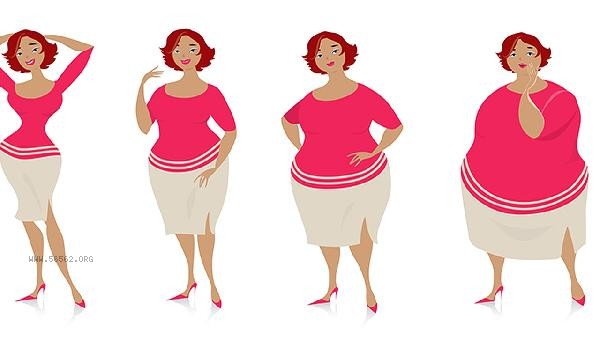Middle aged women need to balance efficiency and health when losing weight. It is recommended to adopt a combination of dietary adjustments, aerobic exercise, strength training, sleep management, and stress control. The main methods include controlling calorie intake, choosing low sugar foods, increasing protein ratio, regular exercise, and improving sleep quality.

1. Control calorie intake
Reduce daily calorie intake by about 300-500 calories to avoid excessive dieting leading to a decrease in basal metabolism. Replace refined rice and flour with coarse grains, and control the size of the fist for each main meal. Keeping a diet diary can help identify hidden sources of calories, such as cooking oil, sugary drinks, and snacks. Pay attention to balanced nutrition and ensure intake of vitamins and minerals.
2. Choose low sugar foods
Prioritize foods with a glycemic index below 55, such as oats, brown rice, whole wheat bread, etc. These foods have slow digestion and absorption, which can prolong satiety and stabilize blood sugar. Paired with high-quality protein such as fish, chicken breast, and soy products, it is recommended to consume 20-30 grams of protein per meal. Avoid high sugar fruits such as lychee and longan, and choose berry fruits instead.
3. Increase protein ratio
Protein intake is recommended to reach 1.2-1.5 grams per kilogram of body weight, divided into 3-4 equal doses. High quality protein sources include egg whites, low-fat dairy products, lean meat, and plant protein. Protein can maintain muscle mass, enhance the thermogenic effect of food, and help break through the weight loss plateau. Whey protein powder can be used as an additional meal supplement, but total calories need to be controlled.

4. Regular Aerobic Exercise
Engage in 150 minutes of moderate intensity aerobic exercise per week, such as brisk walking, swimming, or cycling. The use of interval training is more effective, such as running fast for 1 minute and then walking slowly for 2 minutes, repeating the process. During exercise, the heart rate is maintained within the range of 60-70% of the maximum heart rate. Combine daily activities to increase consumption, such as climbing stairs, walking to commute, etc.
5. Improve sleep quality
Ensure 7-8 hours of high-quality sleep per day, avoid blue light exposure and vigorous exercise before bedtime. Lack of sleep can lead to a decrease in leptin and an increase in ghrelin, affecting the effectiveness of weight loss. Establish a fixed schedule and create a dark and quiet sleeping environment. Short term insomnia can be treated with meditation or soaking feet in warm water. Long term insomnia requires medical attention to investigate the cause.

Middle aged women need to pay special attention to the impact of hormone changes on weight loss. The decrease in estrogen levels before and after menopause can lead to the redistribution of fat, which can easily accumulate in the abdomen. It is recommended to regularly monitor changes in waist circumference and body fat percentage, rather than just focusing on weight figures. Maintaining patience is important, and a healthy weight loss rate of 0.5-1 kilogram per week is recommended. At the same time, it is necessary to prevent osteoporosis and ensure sufficient intake of calcium and vitamin D. If there are abnormal situations such as menstrual disorders and severe fatigue during the weight loss process, it is more important to consult in a timely manner to maintain a healthy lifestyle for a long time than to lose weight quickly. Cultivating sustainable eating and exercise habits can avoid rebound.









Comments (0)
Leave a Comment
No comments yet
Be the first to share your thoughts!